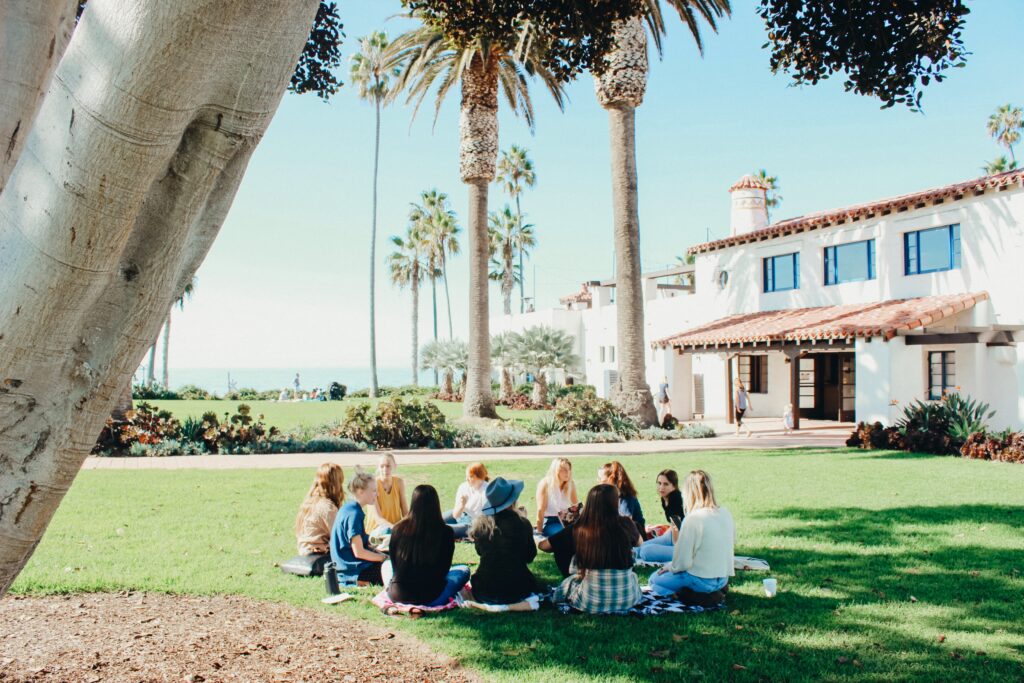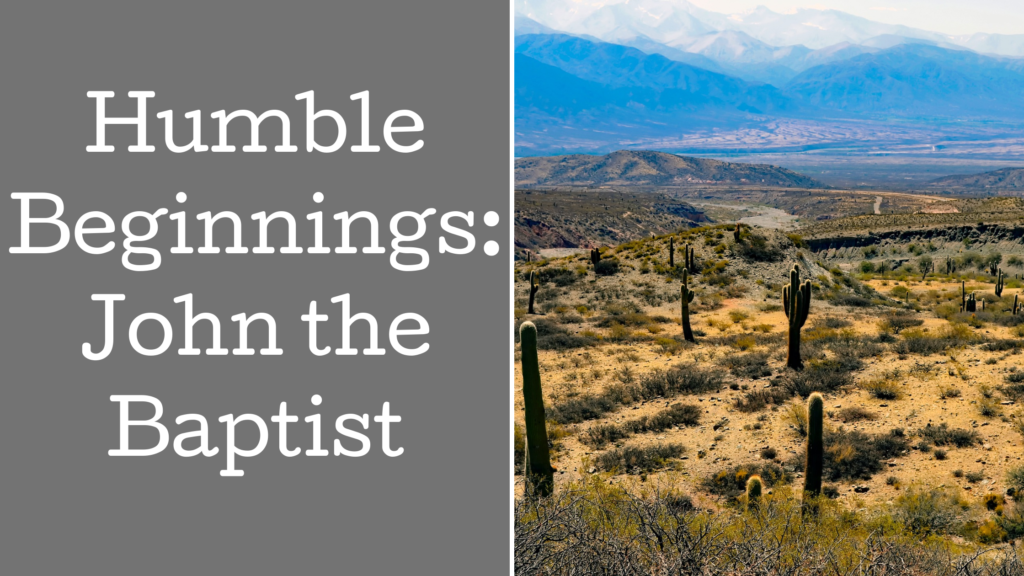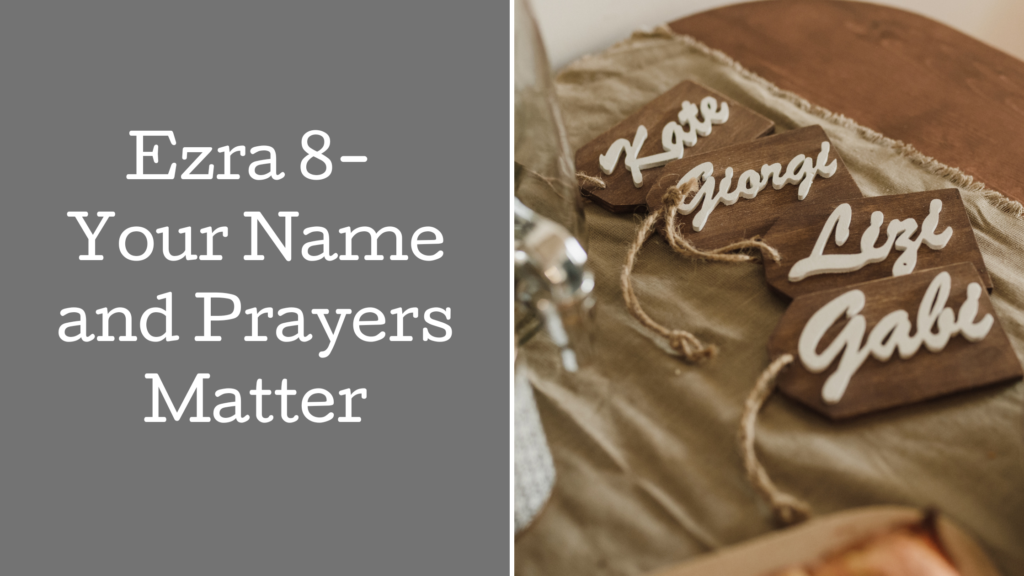
With Whom are You Connecting?
North America is becoming extreme in the pursuit of self-sufficiency. Companies and internet are all moving to greater automation. More people are working from home. You no longer need to walk in almost any store or restaurant if you don’t desire; everything can be shipped to your doorstep. You can awake to freshly brewed coffee on your preset coffee maker. Alexa or Google wakes you and programs your music. You can even have a robotic vacuum cleaning your floors. Convenience and comfort are at the top of everyone’s list.

Somehow, as convenience grows, so does your busyness. These automations should make life easier, and instead, you’re wired to never “turn off.”
Now more than ever, a message is growing louder – Don’t forget about community.
People are seeing this necessity and creating groups both in person and online with the main driver of community at the forefront of their promotions because as convenience and automation grows, so does loneliness, depression, anxiety, and a sense of worthlessness.
None of this seems to make sense with each other. Why would you be busier with so much automation available? If you’re busy, doesn’t that mean you’re surrounded by people? How does that impact community? Shouldn’t the busyness compensate for all the weighty feelings? You don’t have time to feel.
The original message was that automation should create time for you to be more productive on the things that matter more to you. Remove the issues and you have time for innovation and relationships. This is true in a lot of ways, but instead of giving yourself room to think, you’ve filled it with more work. Work is great. I love to work. But there’s only so much capacity you and I have to devote to it. Technology is great, but you’ve conditioned yourself to be plugged in 24/7. It’s hard to switch off because it’s become an addiction, which means your brain can never shut off from work. This thirst for performance outweighs a healthy balance holistically.
This flows into how you treat your community. People become something to just respond to like an email. Give quick concise answers and move on. Keep things superficial.
Attending the Global Leadership Summit last year, Vanessa Van Edwards, a behavioural researcher, shared about the human habits of conversation. She stated when people ask you the basic questions of what you do for work, where you live, etc., your brain shuts down and goes into its own automation; you answer without giving thought to it.

And this is where those weighty feelings of loneliness, depression, and worthlessness take over. You don’t feel like people care about you, or are interested in anything you’re doing. They don’t seem to have time for you unless it’s around fun activities. Conversations stay superficial and you walk away feeling empty. This causes you to desperately look for things instead of people to fill the void.
Once I heard Vanessa’s speech, I began experimenting with the suggestions she offered to engage with people in a deeper way because I love to encourage others. People fascinate me. I love to hear why they’re passionate about what they do for work, what makes them interested in various activities, what they’re learning, how God’s impacting their lives, etc. When I changed my questions to go deeper with others, I began noticing a common response. People usually say, “That’s a great question,” and take time to ponder their thoughts before answering. This leads us into an engaging conversation where we both feel seen and valued.
There’s a difference between being around community and actively being in one. Being around gives you validation to say that you have people in your life, but most often leads you feeling empty and alone. Being in community means you’re willing to be vulnerable and go deeper with others. You share your trials, dreams, and feelings with people, and they respond in love and support. This is what people truly desire and rightfully need.
God created us to be in community from the beginning of creation. “But why,” you ask? All for the glory of God. John Piper explains it this way:
“When the first chapter of the Bible says, “So God created man in his own image, in the image of God he created him; male and female he created them” (Genesis 1:27), what is the point? The point of an image is to image. Images are erected to display the original — to point to the original, glorify the original. God made humans in his image so that the world would be filled with reflectors of God — images of God, seven billion statues of God. So that nobody would miss the point of creation. Nobody (unless they were stone blind) could miss the point of humanity, namely, God — knowing, loving, showing God.”
Ephesians 2:19-22 says:
“So, then, you are no longer foreigners and strangers, but fellow citizens with the saints, and members of God’s household, built on the foundation of the apostles and prophets, with Christ Jesus himself as the cornerstone. In him the whole building, being put together, grows into a holy temple in the Lord. In him you are also being built together for God’s dwelling in the Spirit.”
You and I are made in the image of God to glorify Him. By salvation through the sacrificial gift of Jesus Christ, you are not only God’s creation but made His child as well. You are included into His household and made a citizen of heaven, joined together with all the angels and the saints. Why? To glorify God.

So how does being in community glorify God?
He’s created each one of us with specific sets of learning, skills, and understanding of His word and of life. We come from different cultural and family backgrounds. You and I have unique testimonies of God’s work in us. Therefore, when we come together to share these things, we all grow even deeper in the Lord, and glorify Him ever greater because of His powerful evidential work in us.
When you socialize with people of different cultures, you experience the image of God in various ways. The miracles and love of God are evident in Haiti. The assured tender, quiet whispers are felt in Ireland. The enduring, faithfulness of God is in Texas. The fascinating dreamed image of God is evidence in the middle east. The compassionately relentless Rescuer is in Asia. The list goes on and on. Listen to stories from brothers and sisters around the world. Be in awe of God’s story being interwoven through His people. Then you can’t help but give Him glory, as well as feel His life overwhelming your holistic body. His Bible Truth is living and active. His work continues and will forevermore.
Don’t lose sight of His work in the mundane of the daily grind. Don’t lose your heart in the motions of work and busyness. Don’t hide around community, fearing yourself and all your “baggage” being seen. Find those who truly want to live in community with you, and embrace it! But you’ll only be able to do that by being vulnerable, asking deeper questions, and loving others as God has called you. Then enjoy the fruitful fellowship of His image bearers.



Leave a Reply